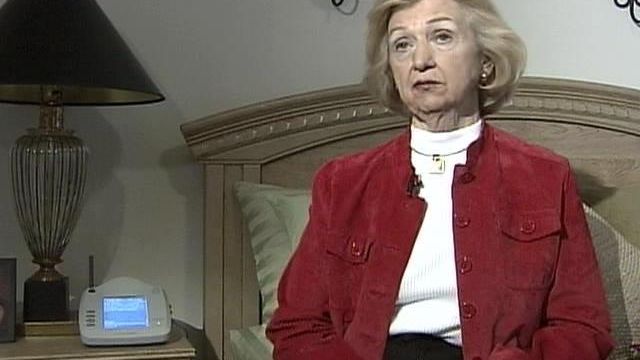Local News
New Defibrillators Can Call In Heart Health to Doctor
Implantable cardioverter defibrillators (ICDs) can save a failing heart with a shock. Now, they can be equipped with technology that lets them report on their users' cardiac health as well.
Posted — UpdatedRALEIGH, N.C. — Implantable cardioverter defibrillators (ICDs) can save a failing heart with a shock. Now, they can be equipped with technology that lets them report on their users’ cardiac health as well.
ICDs are implanted under the skin in the chest. Older ICDs can work without the patients even being aware of it until their next doctor’s appointment. A new remote system detects even minor problems, however, and alerts your doctor in case of an emergency.
Seventy-six-year-old Sarah Bumgardner has heart failure. If she begins to feel ill, she goes to bed and pushes a button on a device that looks like a telephone receiver with a small computer screen. It responds with a human-sounding voice saying, “Please stand within a few feet of your communicator.”
The device collects information about Bumgartner’s heart from the implantable defibrillator in her chest. After a few moments, the communicator tells her that it successfully retrieved the data.
“I know if something happens, it’s going right into the patient management place and they will call the doctor”, said Bumgardner.
Dr. Sameh Mobarek, a cardiologist at Rex Hospital said, “We get the information instantly and can make the decisions about what to do.”
From a secure Web site, Dr. Mobarek can see what’s going on with Bumgardner’s heart. The information shows whether the ICD shocked her heart, what part of the heart had trouble and even the status of the battery. A weight scale and a blood pressure cuff at her home also feed information through the unit using wireless Bluetooth technology. It’s like a doctor’s exam without leaving home.
“It gives the patient a sense of control of his disease state—and people really like that,” said Dr. Mobarek.
“It gives me a great deal of comfort to know, and peace to know, that it’s there if something happens,” said Bumgardner.
The new-style ICDs can reduce the number of doctor visits because minor problems can be addressed over the phone. Sometimes all that’s needed is a change in the patient’s prescription.
Sarah Bumgardner’s ICD gives her daughters greater peace of mind, too.
“Oh, our stress level has definitely gone down. We feel more secure with her living on her own,” said Jo Ann Gardner.
The Guidant Latitude Patient Management System for the new ICD comes at no extra cost to the doctor or patient.
• Credits
Copyright 2024 by Capitol Broadcasting Company. All rights reserved. This material may not be published, broadcast, rewritten or redistributed.





